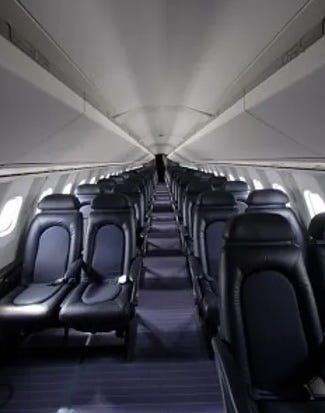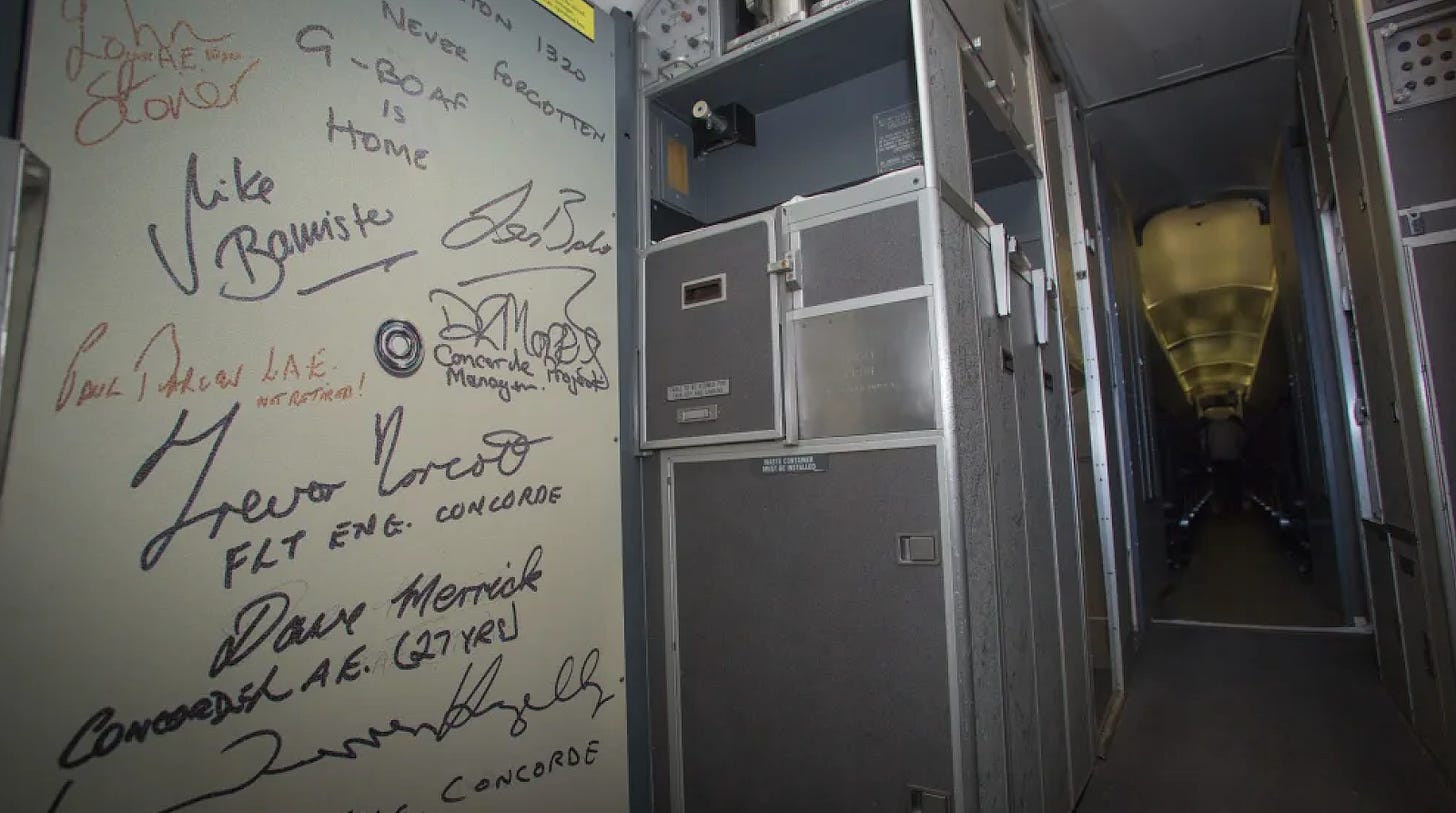Colin Nagy | June 27, 2024
The Supersonic Flight Edition
On the Concorde, the Boom Overture, and the return of ultra-high speed air travel.
Colin here. In the world of frequent fliers, luxury cabin experiences like Emirates First, Air France’s La Première, and Singapore Airlines’ Suites are the grail experiences that everyone wants to try. There's no shortage of videos on YouTube where fans review these experiences, often painstakingly acquired over time with air miles. However, in an earlier period, seats on the most coveted flight in the world were not large, and the experience was loud and slightly intense. The Concorde had no lie-flat seats, but it did have the ultimate flex of saving copious amounts of time. The fastest journey on record on the Concorde was 2 hours, 52 minutes, and 59 seconds, from London Heathrow to JFK airport in New York. The airline flew at Mach 2, approximately 800 miles per hour faster than the comparatively slow Boeing 747. (Predictably, deal-chasing bankers were frequent customers, along with celebrities making the transatlantic journey.)
CNN’s Richard Quest, who flew Concorde five times, once recounted to the network:
“The flight attendants loved being on it; the passengers loved being on it. You were aware of being part of a very small group of people that were privileged enough to be on Concorde. Concorde was extremely small, with only about 100 seats. It had office chairs, bucket seats, and very small windows. It was noisy, extremely noisy, but I challenge anybody not to have a smile from ear to ear when they got on it.”
Indeed, it was an experience. What it lacked in space was made up for with high-end F&B, meticulous service, and clearly lit signs in the front of the cabin outlining the Mach speed and elevation.
The emotional effect that flying it had on staff, customers, and engineers was so strong, many of them signed the plane on its last flight.
Why is this interesting?
A fatal crash, the high cost of parts and maintenance, and issues related to noise ended up being the death knell of Concorde. But there is a new wave of supersonic aspirants to the market. Last week, Boom Supersonic opened a $100 million factory at Piedmont Triad International Airport in Greensboro, North Carolina.
According to a local news report, flights on its flagship Overture supersonic airliner are estimated to be around 3-4 years away, with approximately “100 jets ordered by airlines like United and American.” It will undoubtedly be a luxury product for consumers, but it's clear the pitch to airlines also aspires to some business sense.
According to the Raleigh News & Observer, which spoke to Boom Supersonic CEO Blake Scholl:
“Getting to destinations faster offers unique cost advantages for airlines,” Scholl explained. “Less air time means companies like American Airlines and United (which have agreements to purchase Overtures) can complete more routes. Additional savings may occur if supersonic travel enables plane crews to return home more often rather than staying in foreign hotels.”
Boom has pledged to design the Overture to fly on sustainable aviation fuels (SAFs), which, according to the U.S. Department of Energy, may be blended from renewable feedstocks, food waste, woody biomass, and other non-petroleum sources. SAFs currently cost more than petroleum, partly due to their lower production, but as demand for this alternative fuel rises, many expect its cost to come down.
Economic sales pitches aside, one challenge that remains hard to muffle is the ear splitting sonic boom. That recurring problem with Concorde still exists. NASA is working on an experimental plane, the X-59, designed to make a “gentle thump” rather than a boom. Still, while the glory days of Concorde itself might not be returning, supersonic travel looks likely to once again be a reality for subsequent generations. (CJN)
—
Thanks for reading,
Noah (NRB) & Colin (CJN)
Why is this interesting? is a daily email from Noah Brier & Colin Nagy (and friends!) with editing help from Louis Cheslaw about interesting things. If you’ve enjoyed this edition, please consider forwarding it to a friend. If you’re reading it for the first time, consider subscribing.

